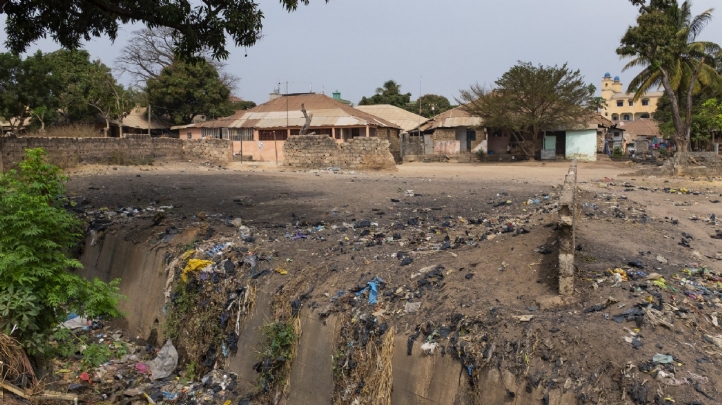Amid what Sir David Attenborough has dubbed an “unfolding catastrophe” of plastic pollution in developing nations, urgent calls have been made for governments and finance firms to make collective and “significant investment” in circular economy systems across Africa, Asia and Latin America.

In some parts of Sub-Saharan Africa, plastic collection rates are currently stagnating at less than 10%
In a new report published today (22 May), non-profit Chatham House outlines the benefits for developing nations in investment in the recycling, reuse and repair sectors. The document, entitled ‘an inclusive circular economy: Priorities for developing countries’, states that such support could create millions of jobs and help mitigate both material costs of up to $630bn annually by 2025 and a large chunk of the emissions associated with global manufacturing.
In order for these benefits to be realised, the report urges national policymakers to “weave” circular economy principles into existing frameworks and to collaborate with neighbouring nations and local authorities before a “critical window of opportunity passes”
It additionally calls for international finance institutions such as The World Bank and the European Investment Bank (EIB) to invest more into developing regional trade and processing hubs for materials such as plastics, and to ensure that these funding decisions also champion other aspects of environmental and social sustainability.
According to the report, these moves have already led to economic and environmental improvements in several of the world’s largest developing countries. India, for example, recycles more than 90% of the PET it produces (compared to around 45% in the UK), following action from NGOs, policymakers and investors alike. Elsewhere, a partnership between HP, the Kenyan Government and other partners has created 2,000 new full-time jobs and reduced the nation’s e-waste footprint, through the creation of a recycling facility in 2013.
“The circular economy can be a win-win for sustainable growth in developing countries and by extension the rest of the world; it can help meet rising consumer demand, create jobs and protect the environment,” Chatham House research fellow for energy, environment and resources Laura Wellesley said.
“But a policy and investment vacuum means opportunities to work together to scale up are being missed. Policymakers and business leaders must urgently find ways to foster greater coordination before a critical window of opportunity passes.”
The third and final recommendation of the Chatham house report is for officials working to deliver the UN’s Sustainable Development Goals (SDGs) and the Paris Climate Agreement. It calls on these experts to “actively promote the circular economy” on the road to 2030 and to look for more “practical” ways in which resource efficiency can be used to achieve the frameworks’ aims.
Collaborative progress
Since the publication of the SDGs in 2015, many businesses across the plastics value chain have taken action to champion SDG 17 – Partnerships for The Goals.
This trend has been particularly pronounced in the wake of Blue Planet Two, with corporates increasingly collaborating in multi-stakeholder partnerships aimed at tackling plastic pollution on a global scale, with a focus on developing nations. One such initiative is the Plastic Leak Project, which is seeking to develop a set of metrics enabling any organisation to assess where plastic pollution is being leaked into nature within its value chain. It has received the backing of 18 companies, including Adidas and McDonald’s, as well as several international committees.
Elsewhere, Unilever, Nestle, Diageo and The Coca-Cola Company recently launched a joint initiative aimed at expanding the plastics recycling economy in Africa’s Sub-Saharan region. Called the Africa Plastics Recycling Alliance and operated in partnership with NGO The Africa CEO Forum the scheme will see the founding companies collaboratively develop and implement programmes to boost plastic recycling rates, which are currently stagnating at less than 10%.
Larger collaborative movements include the likes of the Ellen MacArthur Foundation’s New Plastic Economy Commitment, which has garnered the support of more than 250 business giants, financial investors, non-profit organisations and national Governments, uniting these organisations in a bid to create a “new normal” for plastic packaging by eliminating single-use packaging materials.
The NGOs operating such schemes claim they will help to drive transformational change on a scale which could not be achieved by any one business or government alone. However, businesses taking part in the Alliance to End Plastic Waste have faced criticism for investing billions in new plastic production facilities or expanding their existing infrastructure. Indeed, WWF recently stated that business action on plastics is not yet ambitious or rapid enough to keep pace with population growth and increased production.
Sarah George
